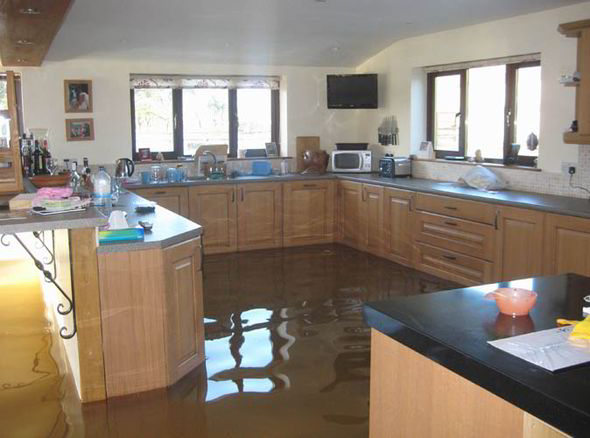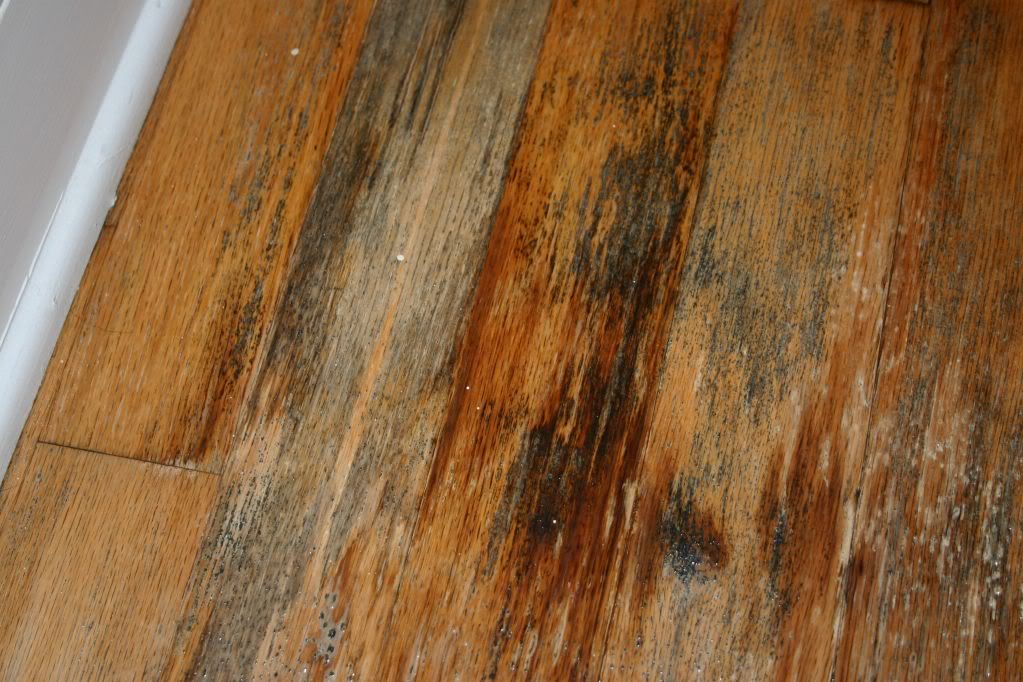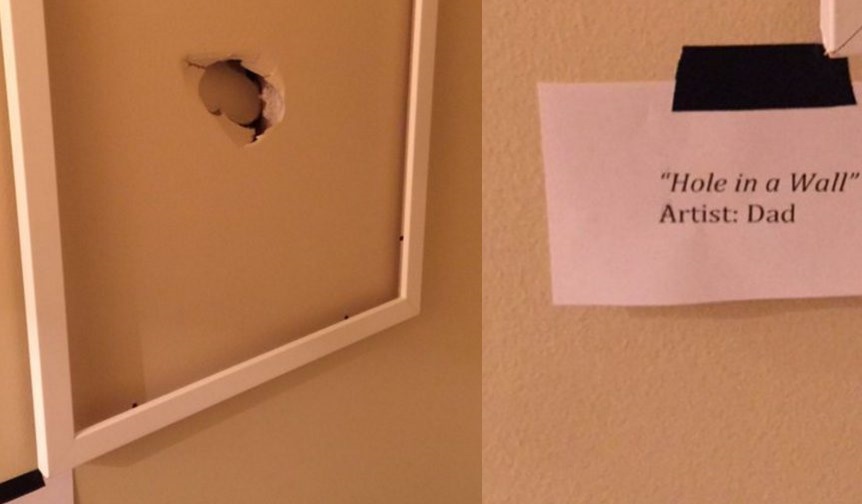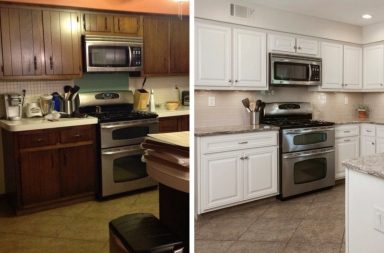Tips for overcoming this not so natural disaster
 Quite a few years back, in the late nineties, I had a one bedroom apartment in the low rent part of Chicago. I had a problem with my water heater, a hot shower would last no longer than three minutes. Naturally, I contacted the building’s management and of course they wouldn’t come at night or on the weekend, only during the weekdays when I’d be at work. What could I do? I gave the okay. They sent someone the very next day, while I was out making a living. When I returned home and opened the front door that evening, I immediately noticed an unusually fresh aroma that gave me pause. Then I heard what sounded like the ferocity of the rapids. I turned on the light and exposed the source of it all – the carpet on the far end of the room was getting soaked by an onrush of water. I walked toward it and peeped into the kitchen from where it was forthcoming and saw that it was under about five inches of water. The pipe underneath the sink had burst and was rapidly releasing the intrusive fluid. I confirmed there was nothing I could do to fix the problem and called management immediately. Let’s just say it was a comedy of errors from there. More like a traumatic farce. By the time the leak was stopped, the carpet was ruined as was a number of shoes and anything else in the way that was perishable by drowning (to add insult to injury, whatever “repairs” were made did not resolve the hot water issue).
Quite a few years back, in the late nineties, I had a one bedroom apartment in the low rent part of Chicago. I had a problem with my water heater, a hot shower would last no longer than three minutes. Naturally, I contacted the building’s management and of course they wouldn’t come at night or on the weekend, only during the weekdays when I’d be at work. What could I do? I gave the okay. They sent someone the very next day, while I was out making a living. When I returned home and opened the front door that evening, I immediately noticed an unusually fresh aroma that gave me pause. Then I heard what sounded like the ferocity of the rapids. I turned on the light and exposed the source of it all – the carpet on the far end of the room was getting soaked by an onrush of water. I walked toward it and peeped into the kitchen from where it was forthcoming and saw that it was under about five inches of water. The pipe underneath the sink had burst and was rapidly releasing the intrusive fluid. I confirmed there was nothing I could do to fix the problem and called management immediately. Let’s just say it was a comedy of errors from there. More like a traumatic farce. By the time the leak was stopped, the carpet was ruined as was a number of shoes and anything else in the way that was perishable by drowning (to add insult to injury, whatever “repairs” were made did not resolve the hot water issue).
Mini disasters such as this are more than a nuisance; they are draining both physically and emotionally. And then there are the financial consequences to deal with. Between cleanup and being unable to use your facilities it’s a real inconvenience. It’s even worse if you actually own the property – you have to deal with insurance. You may not have it in your budget to restore your kitchen and other damaged areas right away.
Obviously, if you are the victim of a home flood, the first thing you want to do is move everything into a dry room. If something is too heavy, like furniture, protect the legs by wrapping them in tin foil.
IMPORTANT – if you see sparks or smell gas, turn off the electricity, LEAVE and call 911 immediately.
You can’t let your kitchen stay submerged in water. The longer that it is the more far reaching the damage will become. The first call you should make is to a disaster relief/water damage restoration company, to ensure an end to the havoc. These companies are generally available around the clock and will typically hurry to your home. Call even before you contact your insurance company, as they will insist on their own cleanup people, it won’t be immediate and whoever they send will work primarily with your insurance company’s best interest in mind. It could even result in a smaller payout for you.
The disaster relief company will perform the due diligence of documenting the damage. Regardless, do your own, even if it’s just supplemental. Take plenty of pictures of the scene as well as the damaged items and take detailed notes. The relief company could use your notes as well as their own when it comes to negotiating a settlement with your insurance company.
In the meantime the cleanup must begin. You’ve got the company over and it’s best to leave it to them. Water will get into everything, even places you’re not aware of. The problem is it will contribute to rot, mold and other damage. Let the pros take over. If you try to involve yourself excessively you may compromise the company’s documentation and affect your insurance claim.
The disaster relief people should be WTR certified and will follow the proper scientific procedures while cleaning your water damage and you can count on them to bring the right equipment and even take preventive measures to protect from future damage.
After they’re in there revitalizing your kitchen, and you’re assured there’s no other random danger looming, call your insurance provider. You don’t want to wait too long after the discovery of the flooding. Just get the cleanup guys in right away, and then call the insurance company, it’s that simple.
You’ll be asked about the cause and the damage even though they understand that the proper documentation is on its way. Ask your adjuster about what your policy covers, extra costs and more. Tell them you already have a disaster relief company in. They may try to pressure you to release them so they can send their own team in, but tell them that would simply not be convenient. You’ve already got these guys in, you don’t want to be stuck with two invoices.
Meanwhile, an insurance adjuster will come to your location and assess the damage anywhere from two days to two weeks after the incident. Obviously, there’s no way you should be expected to hold off cleaning that long. Let your cleanup company continue, keep getting documentation and stay in touch with your insurance company and keep them updated as to progress.
Although such a headache might seem like the end of the world at the time, once you get through it, it’s done. Ultimately the extent of restoration you’re able to do will depend on the settlement and your own personal budget. Obviously, if you come out ahead finance-wise it’s a great opportunity to remodel your kitchen. Sometimes bad things need to happen before the good ones can.
If you’re reading this for no related reason, and have not yet experienced such a disaster, you may want to take a precautionary measure and see what your policy covers. Are your protected if a flood occurs in YOUR home?


